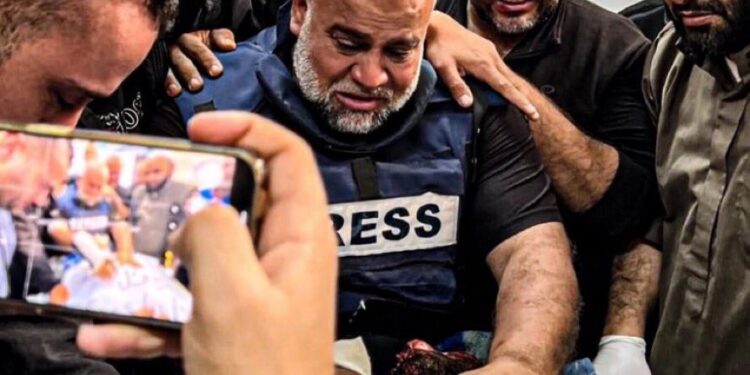GAZA CITY, July 22, 2025 — The journalists’ association of Agence France-Presse (AFP) issued a dire warning on Monday, stating that its reporters in the Gaza Strip are facing extreme food shortages and are at risk of starvation due to Israel’s ongoing blockade of humanitarian aid and relentless military strikes. The unprecedented crisis has raised alarms about the safety and survival of media workers documenting the conflict in the besieged enclave.
The AFP journalists’ association emphasized the severity of the situation, noting, “Since AFP was founded in August 1944, we have lost journalists in conflicts, we have had wounded and prisoners in our ranks, but none of us can recall seeing a colleague die of hunger.” The association underscored the urgency of the crisis, warning that without immediate intervention, its journalists “could die.”
AFP currently employs one freelance writer, three photographers, and six freelance video journalists in Gaza, who are among the few remaining media professionals able to document the ongoing war. These journalists, the only ones left to report from the ground, face significant challenges due to the blockade, which has barred food, medicine, and fuel from entering Gaza since March 2, 2025. The lack of resources has left them struggling to survive, let alone continue their work.
Bashar Taleb, a 30-year-old AFP photographer and lead photographer since 2024, shared his plight: “I no longer have the strength to work in the media. My body is thin. I can’t work anymore.” Taleb, who has worked with AFP since 2010, now lives in the ruins of his bombed-out home in Gaza City, surviving on minimal scraps and moving between refugee camps in search of safety. His elder brother recently collapsed from hunger, highlighting the dire conditions.
Another journalist, Ahlem, a video journalist based in southern Gaza, described the constant threat to her life while working: “Every time I leave the tent to cover an event, interview someone, or document a scene, I don’t know if I’ll come back alive.” She cited the lack of food and water as her greatest challenge, compounded by the dangers of Israeli drone attacks, which force journalists to travel on foot or by donkey cart.
The blockade, which began after Israel ended a two-month ceasefire with Hamas on March 2, has led to a man-made famine, according to aid agencies. The United Nations and other humanitarian organizations have repeatedly warned of widespread starvation, with nearly half a million people in Gaza facing catastrophic hunger. The World Health Organization reported that at least 18 deaths, including children, were attributed to famine in the past 24 hours as of July 22.
AFP’s journalists’ association highlighted the collapse of Gaza’s banking system, which has made it nearly impossible to transfer money, with intermediaries charging commissions as high as 40%. Even with monthly salaries, journalists struggle to afford the exorbitant prices of scarce goods in local markets. The agency is also unable to provide equipment or fuel, further hindering their ability to work.
In response to the crisis, AFP management announced plans to evacuate its remaining journalists and their families from Gaza. “Their lives are in danger, and we therefore urge the Israeli authorities to allow their immediate evacuation along with their families,” AFP stated, noting that it had successfully evacuated eight staff members between January and April 2024.
French Foreign Minister Jean-Noël Barrot supported the call, urging Israel to allow foreign journalists access to Gaza to “bear witness” to the situation and facilitate the evacuation of AFP’s staff. Israel has barred international journalists from entering Gaza since the conflict escalated on October 7, 2023, leaving local reporters as the primary source of information from the enclave.
The Israeli government has not yet responded to AFP’s request for evacuation or to international calls to lift the blockade. Israeli officials have claimed that the blockade is necessary to pressure Hamas into releasing hostages, though aid agencies and the UN have condemned the strategy as a violation of international humanitarian law.
The conflict, now in its 22nd month, has resulted in the deaths of over 59,000 Palestinians, mostly women and children, according to Gaza’s Health Ministry. The Palestine Government Communication Center reported on July 18 that 228 journalists have been killed, 421 injured, and 48 arrested since the war began.
As the humanitarian crisis deepens, the AFP journalists’ association called for urgent international action to protect its colleagues and ensure the flow of aid. “We refuse to stand by and watch them die,” the statement concluded, echoing a growing global outcry over the worsening conditions in Gaza.




































